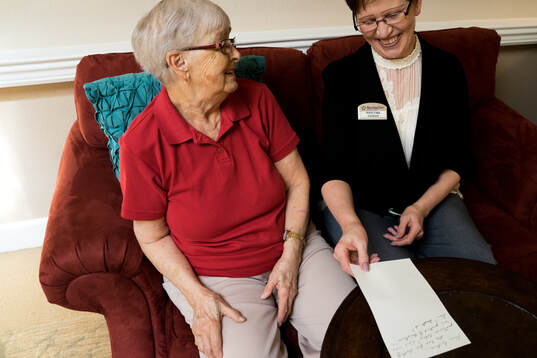Retirement offers the chance to slow down, reflect, and explore new ways to nurture your well-being. At senior housing Kirkland, many residents find journaling a meaningful way to connect with their thoughts, process life events, and even discover new interests. Whether it’s a gratitude journal, a memory log, or creative writing, journaling can support mental, emotional, and cognitive health. With just a few minutes a day, the benefits can add up in surprising ways.
A Daily Dose of Mindfulness
Regular writing can foster mindfulness by providing a space to slow down and organize the chaos of daily thoughts. For seniors, journaling serves as an opportunity to reflect on the small moments of joy and the challenges of life with greater clarity. Many older adults begin their day by recording three things they are grateful for or by documenting a recent favorite experience. This practice aids in nurturing a positive mindset and redirecting attention away from stress.Tip: You don’t need to write pages. Start small by answering prompts like, “What made me smile today?” or “What simple thing did I enjoy most this week?”
Strengthen Mental Sharpness and Creativity
Journaling engages the brain in problem-solving, memory recall, and language processing—essential skills that keep the mind sharp. Residents at senior living Kirkland say that daily journaling helps them feel more focused and mentally clear. Using creative prompts, like “What would my perfect day look like?” or “What advice would I give to my younger self?” can stimulate both creativity and introspection.Tip: Experiment with different types of journaling, from lists to free writing. Bullet journaling is a popular method that combines organization and reflection.
Track Personal Growth and Goals
Journals can also serve as a tool for setting personal goals and tracking progress over time. Writing about small daily successes—whether it’s staying active, trying a new hobby, or reconnecting with old friends—provides motivation. Some residents keep wellness journals to monitor their habits and celebrate personal milestones. “Seeing how far I’ve come makes me feel more accomplished,” one resident shared.Capture Memories and Share Your Legacy
For many, journaling becomes a way to preserve personal stories and reflect on cherished memories. Writing about family events, traditions, or life lessons helps capture experiences that can be passed down to future generations. Some residents have started legacy journals to share with grandchildren at senior housing Kirkland. “It’s my way of staying connected, even when we’re apart,” one resident explained.Journaling isn’t about writing perfectly—it’s about exploring your thoughts, capturing moments, and celebrating growth. Whether you write every day or whenever inspiration strikes, it offers an easy way to reflect, stay sharp, and leave behind something meaningful.

Comments
Post a Comment